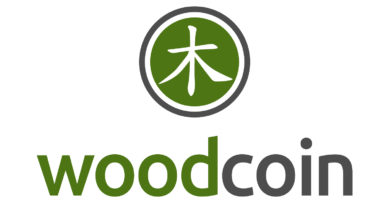Industry Regulators Struggle With Platform Innovation
by John Potter
Once a new technology rolls over you, if you’re not part of the steamroller, you’re part of the road.
— Stewart Brand
It appears that crypto-platforms are beginning to disrupt several highly-regulated industries. This can hardly be unexpected, as blockchain-based platforms remove intermediaries. They also eliminate the need to reconcile conflicting data. As such, many companies can quickly institute new products and services. While blockchain technology is commonly viewed as a competitive advantage, it can also provide regulatory relief as well. The text below explains how blockchain-based platforms are challenging several widely-accepted regulatory provisions.
Crowdfunding Platforms & The SEC
Perhaps no other blockchain-related industry has received more scrutiny from international regulators than the ICO field. At present, the SEC is actively attempting to stop prospective ICOs. And yet, several crowdfunding platforms have launched to support these ICOs. For instance, Indiegogo and Republ
The SEC is certainly fine with regulating crowdfunding platforms in general. However, token-based fundraising is a bit murkier. Earlier this month, the SEC issued a public statement warning that there are potentially unlawful online platforms for trading digital assets…
….notably the coins and tokens offered and sold in initial coin offerings. “If a platform offers trading of digital assets that are securities and operates as an ‘exchange,’ as defined by the federal securities laws, then the platform must register with the SEC as a national securities exchange or be exempt from registration,” the SEC said. A national securities exchange or one that operates under an exemption must have rules designed to prevent fraudulent and manipulative acts and practices, the SEC said (MarketWatch).
It’s not clear yet as to how far the SEC will go to rein-in token sales..The SEC asserts that tokens marketed with the potential for profit “based on the entrepreneurial or managerial efforts of others continue to contain the hallmarks of a security under U.S. law” (SEC Statement). As such, the aforementioned platforms could be considered susceptible to US securities regulation.
Healthcare Platforms & HIPAA
Within the healthcare industry, many health-related ‘platforms’ appear to be forks based on the Ethereum platform (see WELL, Health Nexus). As such, they employ smart contracts as a way to connect healthcare service providers and patients. Other platforms are open-solution and heatlhcare-specific (such as GemOS). Such platforms allow for easy integration with Ethereum and other platforms.
And being a platform, they can offer utility tokens related to their particular niche. For instance, WELL offers tokens to facilitate on-demand health care by enabling cross-border payments, data accessibility, and payment risk. On-demand health care is particularly germane to remaining HIPAA compliant (HIPPA requires medical providers to supply patients with their healthcare records upon request).
In contrast, a more robust healthcare platform will incorporate several advanced blockchain-related technologies. Especially for achieving HIPAA compliance. For instance, the Health Nexus platform emphasizes a key-pair system for secure data sharing. It also employs a distributed database system for distributed storage and a new validation and governance protocol. The latter necessitates creating a governance consortium with the capability to validate and verify proof-of-stake miners. This is in order to make sure they’re HIPAA compliant.
Unfortunately, complying with a centralized authority can sometimes be at odds with decentralization efforts. Nonetheless, expect such platforms to dramatically impact healthcare operations. Particularly in the near future. As Hashed Health observes::
Centralization, consolidation and ever-widening control of healthcare networks has been the dominant business strategy for the industry for decades, especially since the introduction of the Affordable Care Act. Business success in healthcare has primarily come from ever greater control of value chains focusing on covered lives, pharmaceuticals, claims, specialty networks, outpatient facilities, and supplies. It is clear that too much value is being extracted by value chain participants today. An open blockchain solution exposes these relationships and forces re-intermediation with lighter, more nimble value-adding actors. The uncomfortable question that blockchain technology poses for the healthcare industry is the unconventional yet tangible opportunities that open, decentralized networks offer for true value-added healthcare services.
At present, regulatory compliance mechanisms do not easily correspond to these new blockchain platforms. So its likely that regulators will be forced to continually adapt as this technology advances. However, platforms will be forced to innovate as well (especially with regard to meeting patient privacy expectations). Fortunately, crypto-platform developers are highly adept at creating such features.
Insurance Platforms & GDPR
Unlike healthcare & the securities industry, the regulatory requirements involving insurance remains relatively minimal. Among these are the KYC (Know-Your-Customer) and AML (anti-money-laundering
How might a platform meet such requirements? Galileo Platforms, a blockchain-based platform technology company serving the insurance sector, suggests that a “single operator, possibly on behalf of a consortium of insurance companies, would manage and enable the registration, KYC/AML and on-boarding” all at once (Galileo Platform). While such capabilities are likely to be achieved, the technical challenges posed by validating updates via a centralized authority must first be resolved. Unfortunately, incorporating such an entity tends to defeat the blockchain’s raison d’être.
Still, platforms will be a boon to the insurance industry. Consider IXLedger, which bills itself as the first fully-fledged blockchain-based platform for managing insurance products. The company promotes itself as a
“marketplace where all the parties to the Insurance sector gather and choose their services as they seem fit. These parties are Insurers, Insurance Companies, Brokers, and Re-insurers. This platform provides them an interface where they can buy and sell their insurance related products like Insurance Policies, Bonds, Contract and much more.”
Being a platform, IXLedger can produce tokens that can be used to make payments for insurance products and services. These innovations may very well have far-reaching consequences.
And yet, regulatory agency rule-making will likely continue unabated. As with other blockchain-related companies, IXLedger has found instituting the EU’s new General Data Protection Regulation (GDPR) fairly challenging.. When implemented in May, GDPR will allow customers to request removal of their personal data. This contradicts the blockchain’s immutability nature.
In order to comply, IXLedger will be storing data access permissions on the blockchain and actual data off-chain (Medium). One wonders if the technical challenges presented with this rule will somehow encourage greater platform use.
Conclusion
Obviously, most regulators appear to be just now catching up with the power of platforms. Not incidentally, its platforms that will have a tremendous impact upon the crypto-scene this year.
XTRABYTES plans to be one such company. Its advanced technology modules may very well impact each of the industries above. Depending on its features, X-CHANGE (a decentralized exchange) might very well serve as an alternative to crowdfunding site and ICOs. Likewise, future modules X-PAY and X-VAULT may offer unique and worthy features amenable to the insurance and healthcare industries, respectively. With a code-agnostic platform like XTRABYTES, product innovation can be continual.



